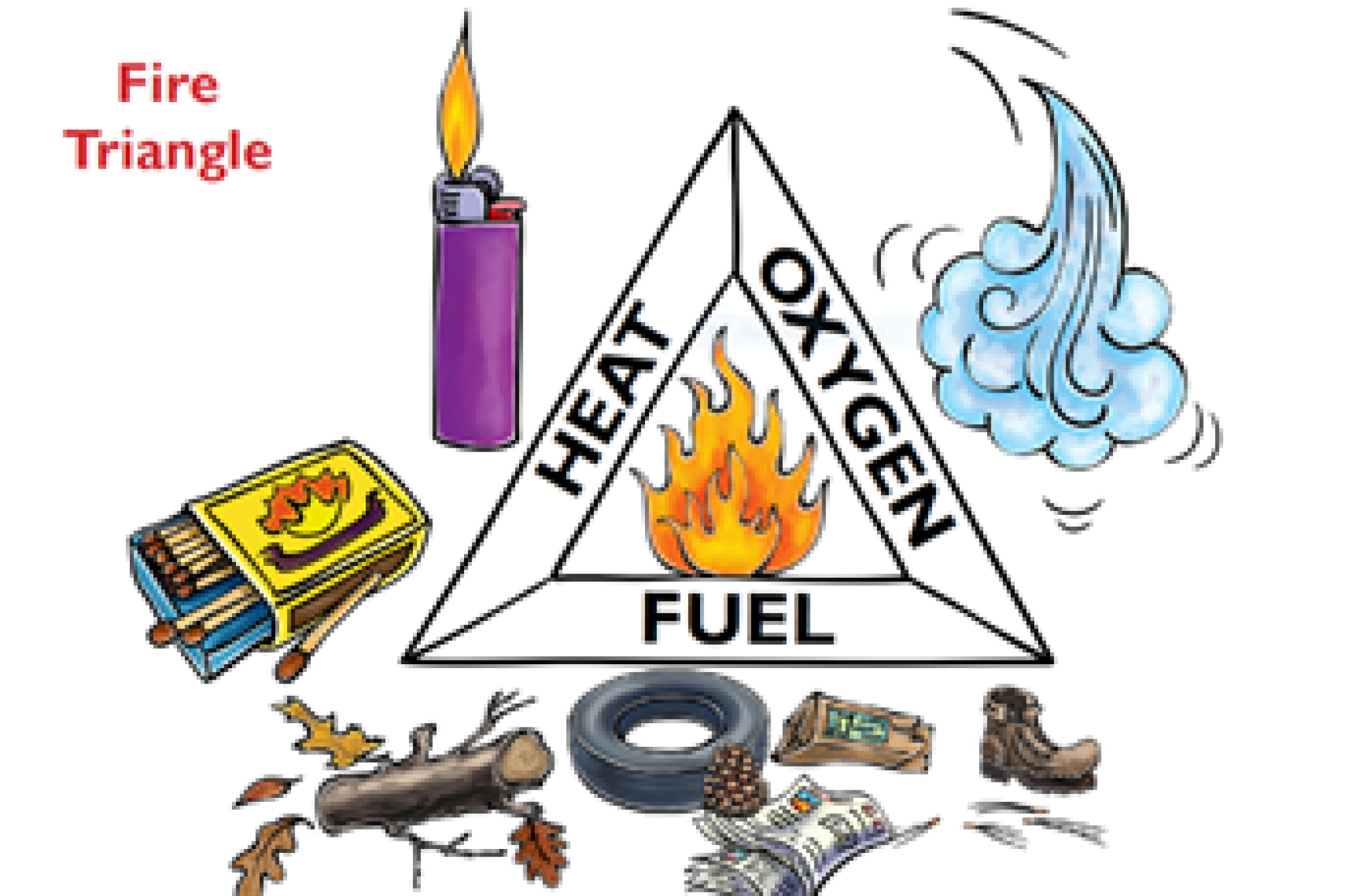
Fire Needs Three Things to Survive - Heat, Fuel, and Air
Firstly, fire needs a heat source because oxygen is needed to keep something burning. Air is made up of 21% oxygen and if it drops to 15%, people or a fire will not survive. We can stop a fire by smothering or covering it with sand, foam, water, a blanket or fire extinguishers.
Secondly, fire needs a heat source; a spark or flame to get it started, it also needs a fuel source. If the fuel drops below the temperature of ignition, the fire will be extinguished. In such cases, we can put out a fire by cooling it with water.
Lastly, to sustain a fire, you require a fuel source such as dry wood, paper, dry plants, or flammable rubbish. By eliminating or reducing the availability of a fuel source, we can prevent fires. Preventive measures include establishing firebreaks, which are safe areas with minimal fuel that can halt the spread of fire, and clearing invasive alien vegetation, a significant source of fuel for fires.

Fire and Fynbos
Natural fires are good for fynbos when the veld burns at the right time of the year, with the right amount of time in-between fire. Fire helps fynbos plants reproduce and ensures their long-term survival. However, if a fire occurs at the wrong time of the year, it has a negative effect. Certain plants do not get enough time between fires to store enough seeds.
Over the past 20 years, we have had an increase in the number of fires caused by people, as well as more high fire danger days due to climate change. This unfortunately leads to many fires and areas burnt.
You Can Be the Hero
There are many ways we can help stop fires. Even something easy like following the rules for making a fire in nature can help a lot. If you see smoke or fire, it's super important to tell someone. When you do, firefighters can come quickly to save plants, animals, houses, and people. Just dial 112 from your cellphone or 10177 from a regular phone to report smoke or fire. It's like calling for help!
Acknowledgement: partially reworded from Fire Awareness Flipchart





